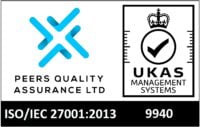Exploring Different Generator Types: Which One is Right for You?
Generators provide reliable power solutions for a range of situations. Whether you’re looking to maintain electricity during power cuts at home, power tools on a job site, or enjoy camping with modern conveniences, understanding the different generator types is important.
From standby generators that activate automatically during power cuts to portable generators designed for outdoor adventures, each type serves a unique purpose. As power demands grow, so does the variety of generators available, catering to both everyday users and professionals.
Understanding Generator Basics
Generators are devices that convert mechanical energy into electrical energy through the process of electromagnetic induction. At their core, generators consist of a rotating component called the rotor and a stationary part known as the stator. As the rotor spins, it creates a magnetic field that induces an electrical current in the stator’s windings.
The mechanics can be understood simply: fuel, whether it’s petrol, diesel, or renewable sources, powers an engine. This engine drives the rotor, producing electricity that can be used immediately or stored for later use.
Primary Uses of Generators
Generators serve a variety of purposes across different settings, making them valuable tools for numerous applications. Here are some of the primary uses:
- Emergency Power: One of the most common applications of generators is as a backup power source during power cuts. Standby generators can automatically activate to ensure a seamless supply of electricity, safeguarding your home, workplaces, shops and hospitals.
- Leisure Activities: Generators are increasingly popular for leisure activities, including camping trips, outdoor events, and festivals. A generator for leisure provides the necessary power for lights, music systems, cooking equipment, and charging devices, allowing you to enjoy modern comforts while away from traditional power sources. Whether you’re hosting a backyard barbecue or camping in the woods, a portable generator can enhance the experience by keeping everything running smoothly.
- Industrial Applications: In industrial settings, larger generators play a crucial role in powering heavy machinery and equipment. They provide reliable electricity for construction sites, manufacturing plants, and large-scale events, where power demands can be substantial.
- Powering Water Pumps: Generators are also commonly used to power water pumps for irrigation, drainage, and construction projects. They provide a dependable energy source for both residential and agricultural needs, ensuring that water is readily available for irrigation during dry seasons or for emergency pumping situations.
General Types of Generators
Each type of generator offers unique benefits and applications, making them suitable for various situations. In this section, we will explore three primary types: standby generators, portable generators, and inverter generators.
Standby Generators
Standby generators are permanently installed units designed to provide automatic backup power during outages. These systems are typically connected directly to a home’s electrical system and activate automatically when they detect a power failure.
Typical Uses: Standby generators are ideal for power backup, ensuring that essential appliances like refrigerators, heaters, and medical equipment remain operational during power cuts.
Key Features:
- Automatic Operation: Unlike portable models, standby generators kick in automatically, providing seamless power to your home.
- High Capacity: They are available in various sizes to cater to different energy needs, making them the best standby generators for larger homes.
Portable Generators
Portable generators are versatile power sources designed for temporary use. They are typically fuel-powered and can be easily transported, making them an excellent option for various applications.
Key Features:
- Mobility: Lightweight and easy to transport, making them suitable for on-the-go power needs.
- Fuel Variety: Can run on petrol or propane, offering flexibility in fuel choice.
- Multiple Outlets: Equipped with several outlets for powering multiple devices simultaneously.
Typical Uses:
- Powering Tools: A portable generator for tools is perfect for construction sites or DIY projects, providing the necessary power for electric tools and equipment.
- Leisure Activities: Popular for camping trips and outdoor events, enabling users to power lights, cookers, and entertainment devices.
- Temporary Power: Great for providing electricity during events or when temporary power is needed in areas without access to a grid.
Check out our Portable Diesel Generators here.
Inverter Generators
Inverter generators utilise advanced technology to produce clean, stable electricity, making them ideal for sensitive electronics. They convert raw power into a smooth sine wave, significantly reducing noise and emissions.
Key Features:
- Noise Reduction: One of the most significant advantages of inverter generators is their quiet operation, making them a quiet generator for home use or camping environments.
- Efficiency: They are typically more fuel-efficient than traditional generators, offering longer run times for the same amount of fuel.
Typical Uses:
- Electronics: Inverter generators are perfect for powering sensitive devices like laptops and smartphones, ensuring they are not damaged by fluctuations in power.
- RVs and Lightweight Applications: Their portability and efficiency make them the best inverter generators for RVs and other light-duty applications, where space and weight are concerns.
Types of Fossil Fuel Generators (Petrol & Diesel)
Fossil fuel generators are popular choices for providing reliable power across various applications. They primarily utilise petrol or diesel as fuel sources, each offering distinct advantages and disadvantages.
Petrol Generators
Key Features:
- Portability: Typically lightweight and easy to transport.
- Wide Range of Power Outputs: Available in various sizes to cater to different power requirements.
Benefits:
- Cost-Effective: Generally more affordable than diesel generators, making them accessible for casual users.
- Quick Refuelling: Petrol is readily available and can be quickly refuelled, which is convenient for users.
Typical Uses:
- Home Backup Power: Ideal for providing temporary electricity during outages.
- Outdoor Events: Commonly used for camping trips, and outdoor events to power lights and appliances.
Advantages and Limitations:
- Advantages: Petrol generators tend to operate quieter than diesel models, which is beneficial for residential use.
- Limitations: They have shorter run times and lower fuel efficiency, and petrol can be more volatile, requiring careful storage and handling.
Check out our Petrol Generators here
Diesel Generators
Key Features:
- High Power Output: Designed to produce significant amounts of electricity, suitable for industrial use.
- Robust Construction: Built for longevity and can withstand harsh working conditions.
Benefits:
- Fuel Efficiency: Diesel engines offer better fuel efficiency, allowing for longer operation periods on a single tank.
- Reliable for Heavy Loads: Excellent choice for sustained power needs in demanding environments.
Typical Uses:
- Construction Sites: Commonly used for powering tools and equipment in construction and industrial settings.
- Backup Power for Businesses: Ideal for providing emergency power in commercial operations and during extended outages.
Advantages and Limitations:
- Advantages: Diesel generators are generally more efficient and require less frequent refuelling compared to gasoline options. They can also handle higher loads without stalling.
- Limitations: Higher initial costs and maintenance requirements. They tend to be noisier and produce more emissions, which may not be suitable for all residential applications.
Check out our Diesel Generators here
Natural Energy Source Generators
Natural energy source generators are increasingly popular due to their clean energy benefits and minimal environmental impact. Solar generators, in particular, offer an eco-friendly option for powering various devices and applications.
Solar Generators
Key Features:
- Solar Panels: Equipped with photovoltaic cells that capture sunlight and convert it into usable electricity.
- Battery Storage Options: Many solar generators include battery storage, allowing users to store excess energy for later use.
Benefits:
- Renewable Energy Source: Utilises sunlight, a renewable resource, reducing reliance on fossil fuels and decreasing carbon footprints.
- Low Operating Costs: Once installed, solar generators have minimal operational costs, as sunlight is free and requires no fuel purchases.
Typical Uses:
- Home Use: Ideal for powering small appliances, lights, and charging devices in residential settings.
- Outdoor Activities: Great for camping, picnics, and tailgating, providing power for cooking, lighting, and entertainment.
Advantages and Limitations:
- Advantages: Solar-powered generators are environmentally friendly and can operate silently. They are particularly beneficial in areas with abundant sunlight and can help reduce electricity bills by providing an alternative power source.
- Limitations: Their efficiency is heavily dependent on sunlight availability, making them less effective in cloudy or rainy conditions. Additionally, the initial cost of solar panels and battery systems can be high, and their power output may not meet the demands of larger appliances simultaneously.
Check out our Solar Powered Generators Here
Finding the right generator can make all the difference in your everyday life, whether you’re looking to keep the lights on during unexpected power cuts, enjoy the great outdoors while camping, or tackle projects around the house. With so many different generator types available, it’s essential to know what each offers and how they can meet your needs.
Standby generators provide peace of mind with their automatic operation during outages, while portable generators give you the freedom to take power wherever you go. If you’re tech-savvy or need to power sensitive electronics, inverter generators offer a quiet and efficient solution. For those considering eco-friendly options, renewable energy generators are becoming increasingly popular, providing clean power that benefits both you and the planet.
As you weigh your options, think about your specific needs—how much power you require, how often you’ll use it, and where you plan to use your generator. It’s not just about having power; it’s about choosing a solution that fits seamlessly into your lifestyle.






